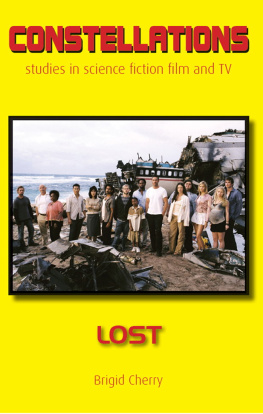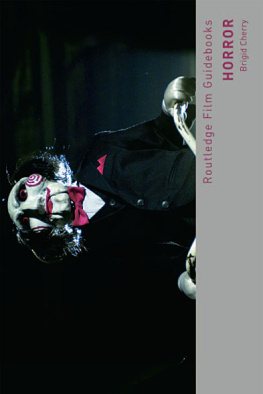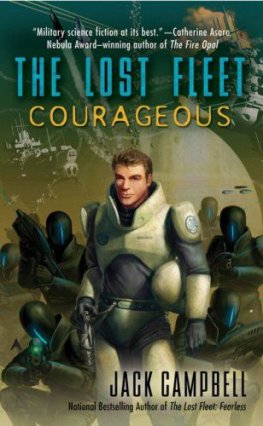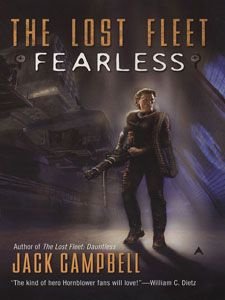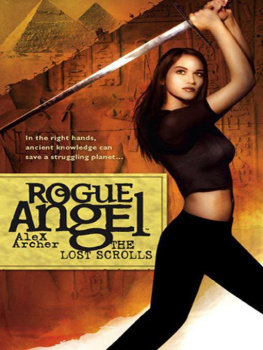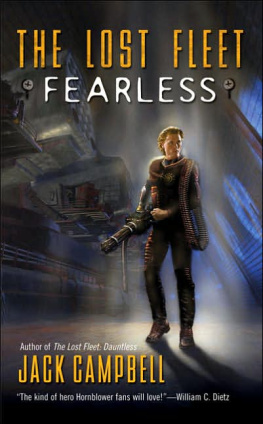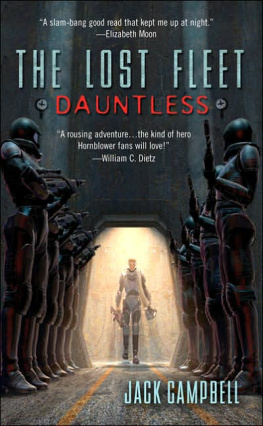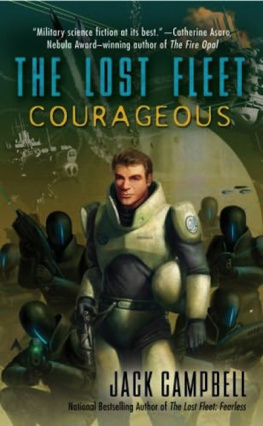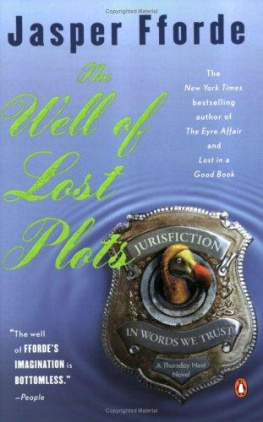Brigid Cherry - Lost
Here you can read online Brigid Cherry - Lost full text of the book (entire story) in english for free. Download pdf and epub, get meaning, cover and reviews about this ebook. genre: Romance novel. Description of the work, (preface) as well as reviews are available. Best literature library LitArk.com created for fans of good reading and offers a wide selection of genres:
Romance novel
Science fiction
Adventure
Detective
Science
History
Home and family
Prose
Art
Politics
Computer
Non-fiction
Religion
Business
Children
Humor
Choose a favorite category and find really read worthwhile books. Enjoy immersion in the world of imagination, feel the emotions of the characters or learn something new for yourself, make an fascinating discovery.
- Book:Lost
- Author:
- Genre:
- Rating:5 / 5
- Favourites:Add to favourites
- Your mark:
- 100
- 1
- 2
- 3
- 4
- 5
Lost: summary, description and annotation
We offer to read an annotation, description, summary or preface (depends on what the author of the book "Lost" wrote himself). If you haven't found the necessary information about the book — write in the comments, we will try to find it.
Lost — read online for free the complete book (whole text) full work
Below is the text of the book, divided by pages. System saving the place of the last page read, allows you to conveniently read the book "Lost" online for free, without having to search again every time where you left off. Put a bookmark, and you can go to the page where you finished reading at any time.
Font size:
Interval:
Bookmark:

CONSTELLATIONS
Like the future itself, the imaginative possibilities of science fiction are limitless. And the very development of cinema is inextricably linked to the genre, which, from the earliest depictions of space travel and the robots of silent cinema to the immersive 3D wonders of contemporary blockbusters, has continually pushed at the boundaries. Constellations provides a unique opportunity for writers to share their passion for science fiction cinema in a book-length format, each title devoted to a significant film from the genre. Writers place their chosen film in a variety of contexts generic, institutional, social, historical enabling Constellations to map the terrain of science fiction cinema from the past to the present and the future.
This stunning, sharp series of books fills a real need for authoritative, compact studies of key science fiction films. Written in a direct and accessible style by some of the top critics in the field, brilliantly designed, lavishly illustrated and set in a very modern typeface that really shows off the text to best advantage, the volumes in the Constellations series promise to set the standard for SF film studies in the 21st century.
Wheeler Winston Dixon, Ryan Professor of Film Studies, University of Nebraska
 Constellations
Constellations
 Constelbooks
Constelbooks
Also available in this series
12 Monkeys Susanne Kord
Blade Runner Sean Redmond
Brainstorm Joseph Maddrey
Children of Men Dan Dinello
Close Encounters of the Third Kind Jon Towlson
The Damned Nick Riddle
Dune Christian McCrea
Ex Machina Joshua Grimm
Inception David Carter
Jurassic Park Paul Bullock
Mad Max Martyn Conterio
RoboCop Omar Ahmed
Rollerball Andrew Nette
Stalker Jon Hoel
Forthcoming
Mr. Freedom Tyler Sage
The OA David Sweeney
Seconds Jez Conolly & Emma Westwood
The Stepford Wives Samantha Lindop
CONSTELLATIONS
Lost
Brigid Cherry

Dedication
For Isla, may you never be lost.
Acknowledgements
Writing this book, and rewatching Lost, has been an enjoyable and productive experience, but it could not have taken place without the help and support of many people. I would particularly like to acknowledge the support of my colleagues at St Marys University during the development of this project. The students who took my course on cult film and television also deserve a mention and I would like to thank them for their contributions to various seminar discussions. I would also like to thank John Atkinson, the editor of the Constellations series at Auteur/Liverpool University Press, for taking on this project. Finally, and most importantly, I would like to acknowledge Brian Robb, who originally came up with the idea for this book and encouraged me to pursue the project. His inspiration and thought-provoking discussion are always appreciated.

First published in 2021 by
Auteur, an imprint of Liverpool University Press,
4 Cambridge Street, Liverpool L69 7ZU
www.liverpooluniversitypress.co.uk/imprints/Auteur/
Copyright Auteur 2021
Series design: Nikki Hamlett at Cassels Design
Set by Cassels Design www.casselsdesign.co.uk
Printed and bound by CPI Group (UK) Ltd, Croydon CR0 4YY
All rights reserved. No part of this publication may be reproduced in any material form (including photocopying or storing in any medium by electronic means and whether or not transiently or incidentally to some other use of this publication) without the permission of the copyright owner.
British Library Cataloguing-in-Publication Data
A catalogue record for this book is available from the British Library
ISBN paperback: 978-1-80085-923-4
ISBN hardback: 978-1-80085-922-7
ISBN epub: 978-1-80085-806-0
ISBN PDF: 978-1-80034-395-5
Contents
Introduction: The Crash
From its opening moments featuring the aftermath of a plane crash on a tropical island Lost (2004-10) became one of the most intriguing and talked about television programmes in the era of digital media. Yet what is it about this drama series that so captivates? In many respects, it is because Lost itself is a mystery. This is not to say that it is unknown or unknowable, but that as a cultural text the narrative is constructed around a series of mysteries and the plotlines deliberately raise more questions than they answer. That these narrative enigmas are presented as a genre hybrid of science fiction, adventure series, and reality TV only deepens the intrigue. Moreover, the story itself carries over into its paratexts this extra-textual narrative material includes a novel, a videogame, short scenes available online, interactive online games, and even the merchandising such as jigsaw puzzles. To be drawn into the fictional world of Lost is to become a detective of sorts a solver of mysteries and a collector of clues. The narration on the promotional trailer for Lost: Missing Pieces, for example, directs avid viewers into taking on this role. These missing pieces are a series of thirteen two- to three-minute long mobisodes distributed prior to the fourth season in 2008 on the Verizon mobile network and the ABC website that fill in narrative gaps in the first three seasons of Lost. The trailer offers the potential viewer: New scenes, new clues, a new chance to get into the mystery of Lost, while a character (Ben Linus, in a clip from the series) tantalizingly promises I have information you need. As this indicates, viewers need clues and information in order to be able to understand the mystery of Lost. Developed and extended over its six seasons, this mystery forms the core of the narrative. In telling the stories of the plane crash survivors on the island and beyond, nothing is ever quite what it seems and answers only generate more questions.
Getting There: The Making of Lost
Although Lost ultimately turned out to be a complex narrative construction imbued with science fiction tropes, at its outset the premise was much more straightforward. An idea for a series about the survivors of a plane crash was first suggested by ABC Entertainment president Lloyd Braun on a management retreat in 2003 at a time when the network was desperate to generate fresh ideas since it had fallen behind NBC, CBS and Fox in the ratings (Sellers 2004). The inspiration was Cast Away (2000), the film about a systems engineer who must learn how to survive alone on a deserted island after a plane crash (Bernstein 2007). Quoted by David Bernstein (2007), Thom Sherman, then a senior vice-president of ABC, said that the idea was not taken seriously because it was reminiscent of Gilligans Island (1964-67). Despite it being rejected at the meeting, Sherman discussed the idea with Ted Gold from Spelling Productions where an idea for a similar fictional drama series, this time based on the reality TV hit Survivor (2000-), was being considered. Sherman and Gold commissioned screenwriter Jeffrey Lieber, then on a blind deal contract to Spelling (an agreement for a future unspecified project), to develop a script for a pilot. The series was thus, from its outset, one that combined and hybridised different generic forms and ideas (notably realism and character-driven drama). Working from ABCs high concept a hyper-realistic depiction of survivors on an uninhabited tropical island Lieber pitched his outline for a series which was at that point titled
Font size:
Interval:
Bookmark:
Similar books «Lost»
Look at similar books to Lost. We have selected literature similar in name and meaning in the hope of providing readers with more options to find new, interesting, not yet read works.
Discussion, reviews of the book Lost and just readers' own opinions. Leave your comments, write what you think about the work, its meaning or the main characters. Specify what exactly you liked and what you didn't like, and why you think so.

